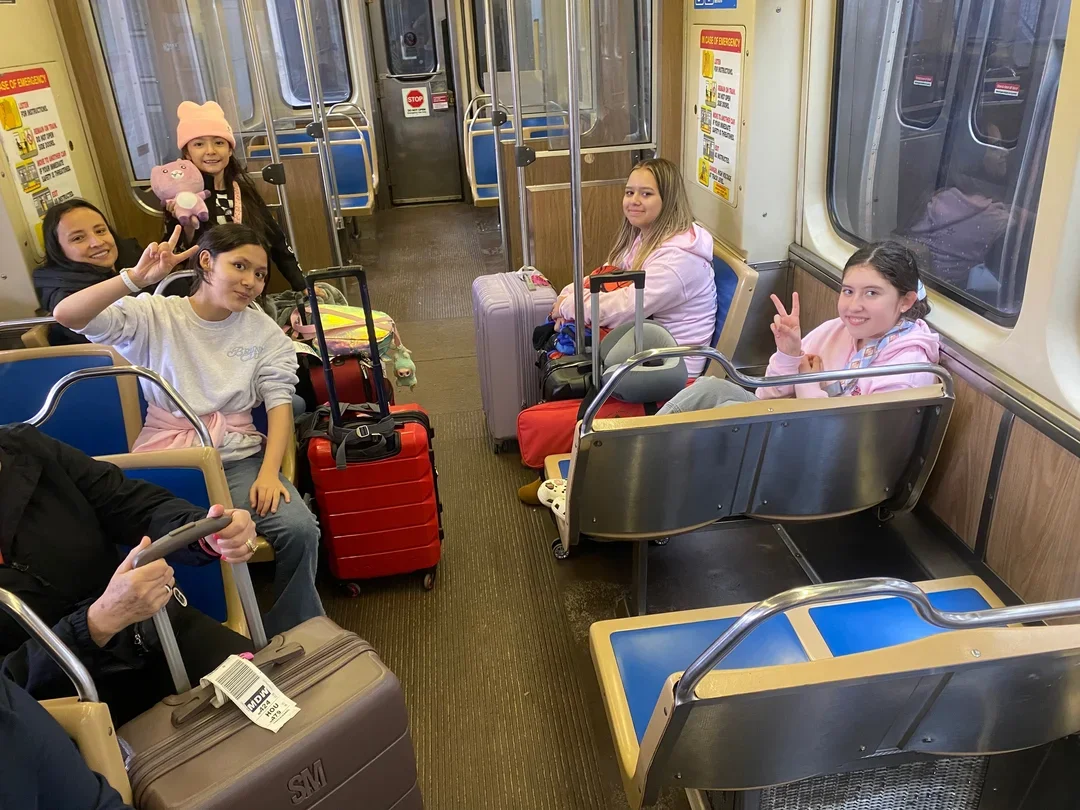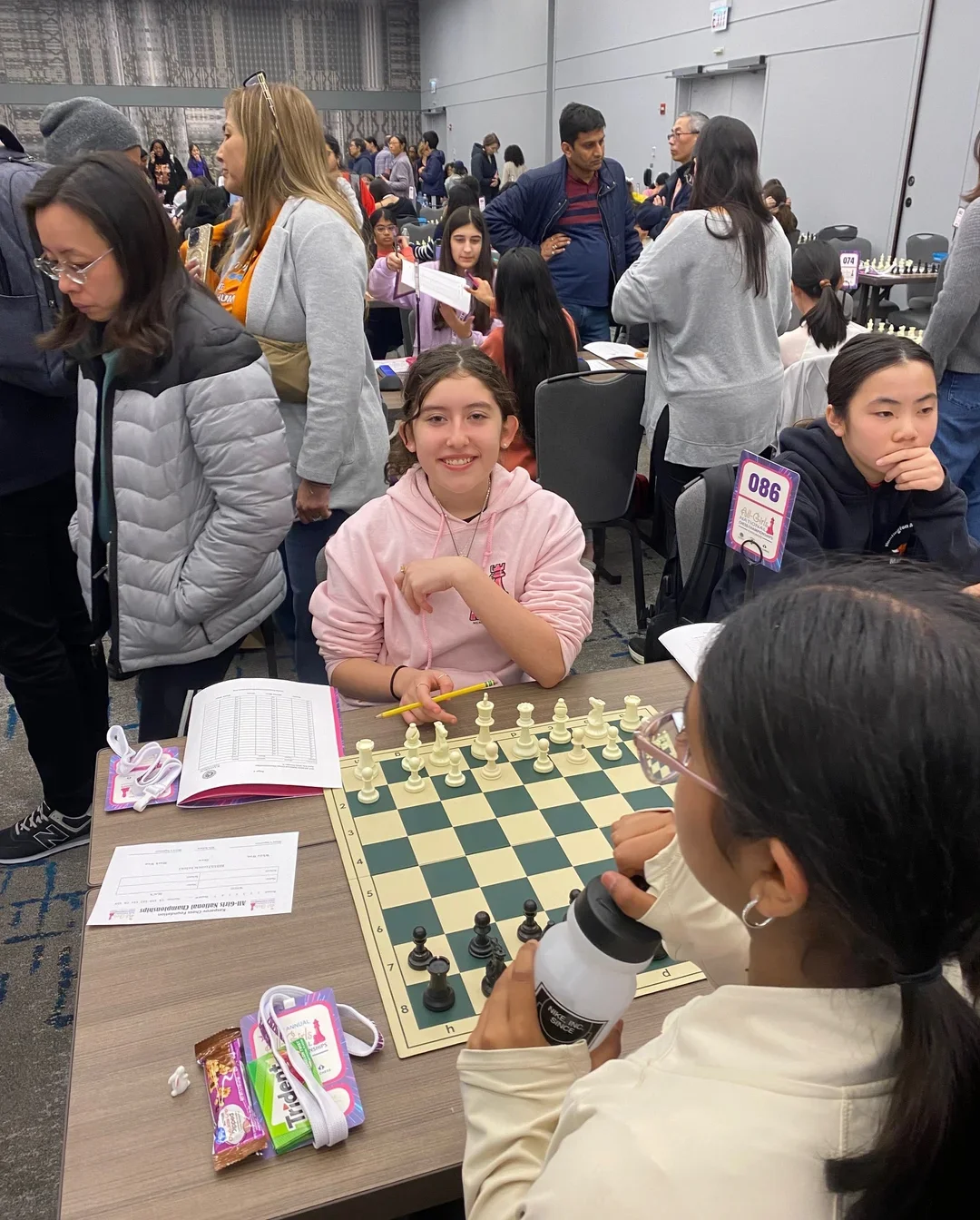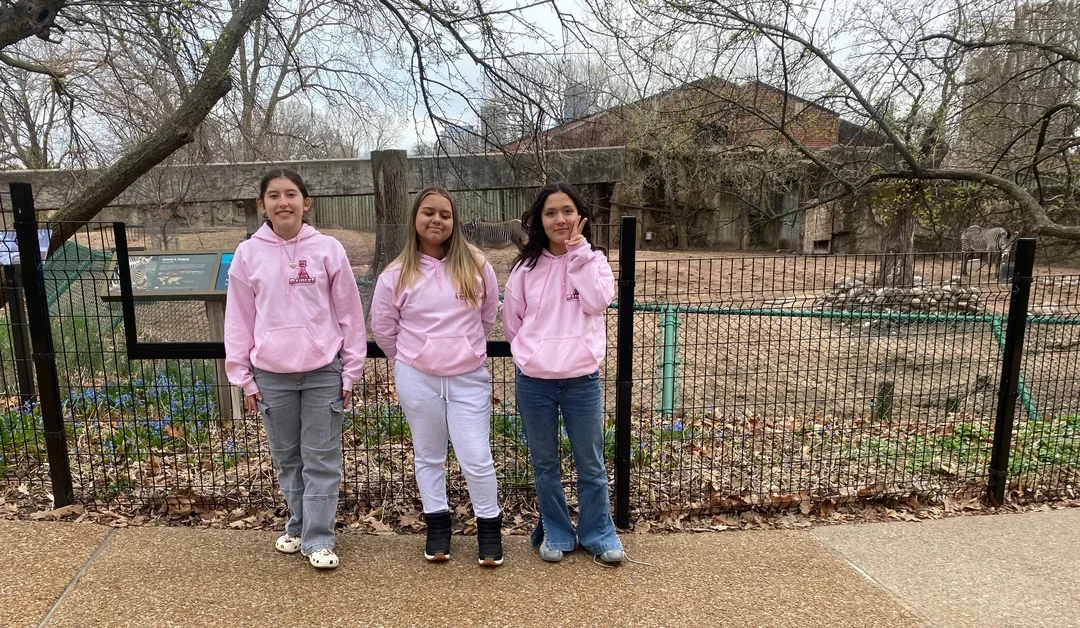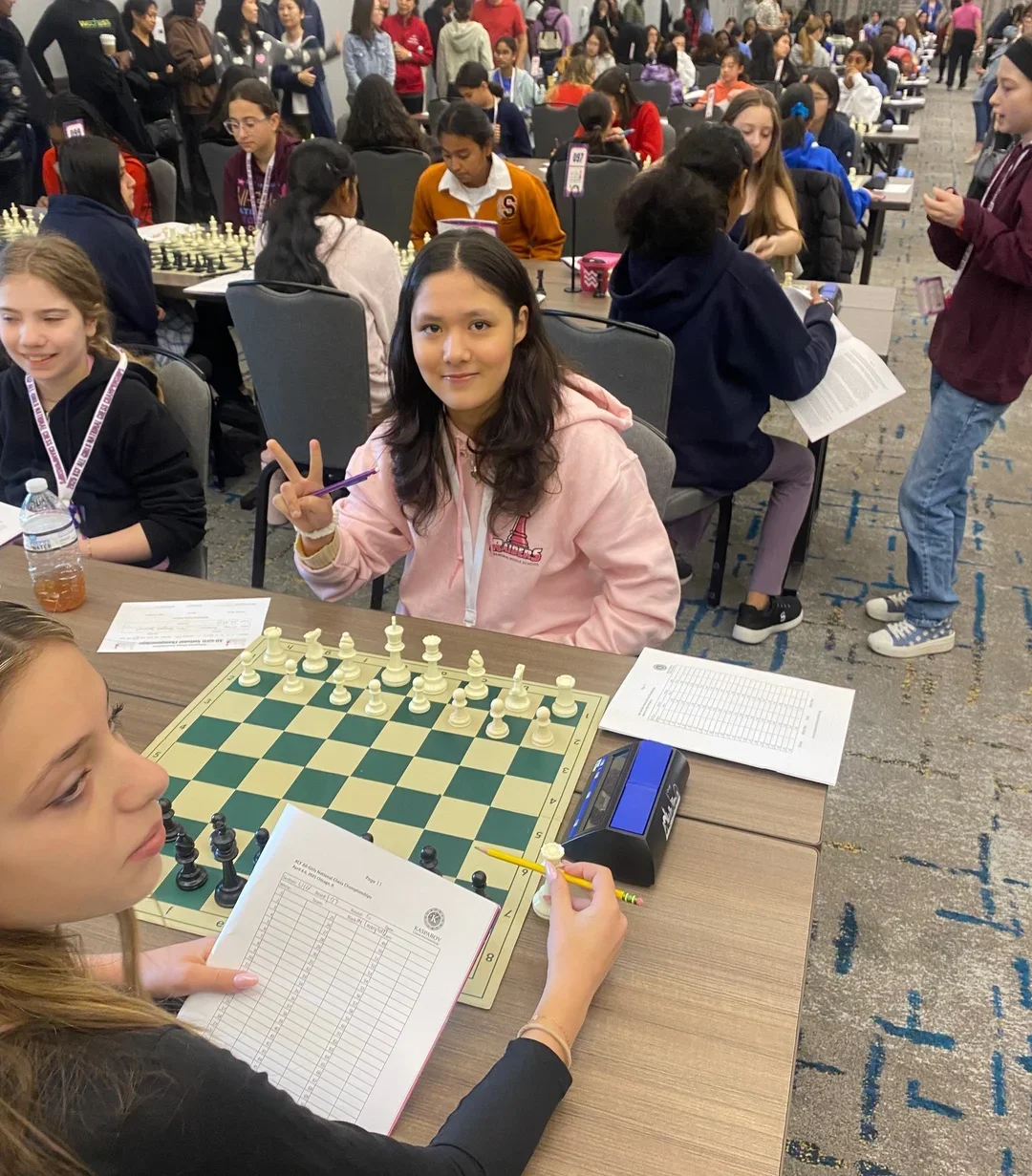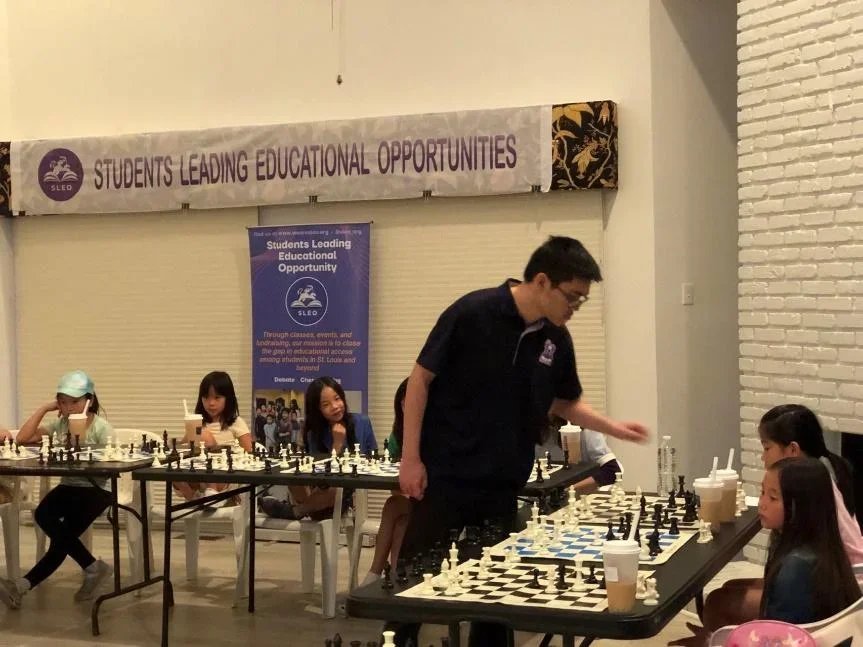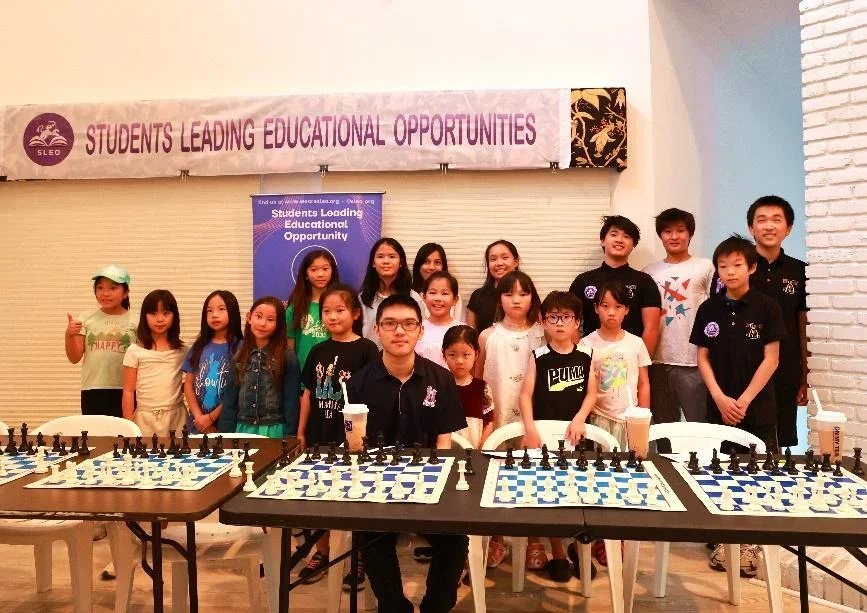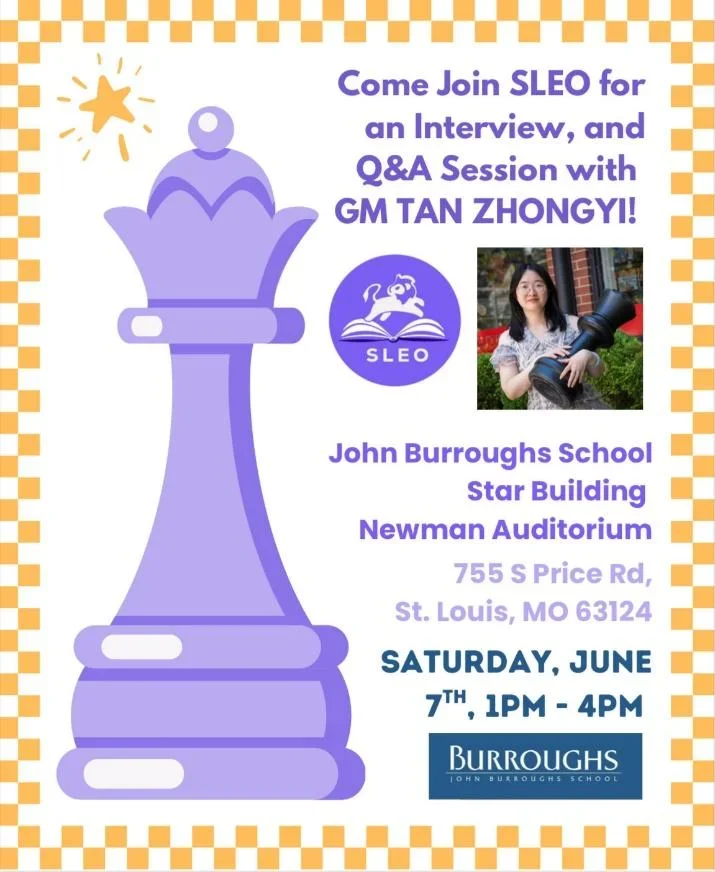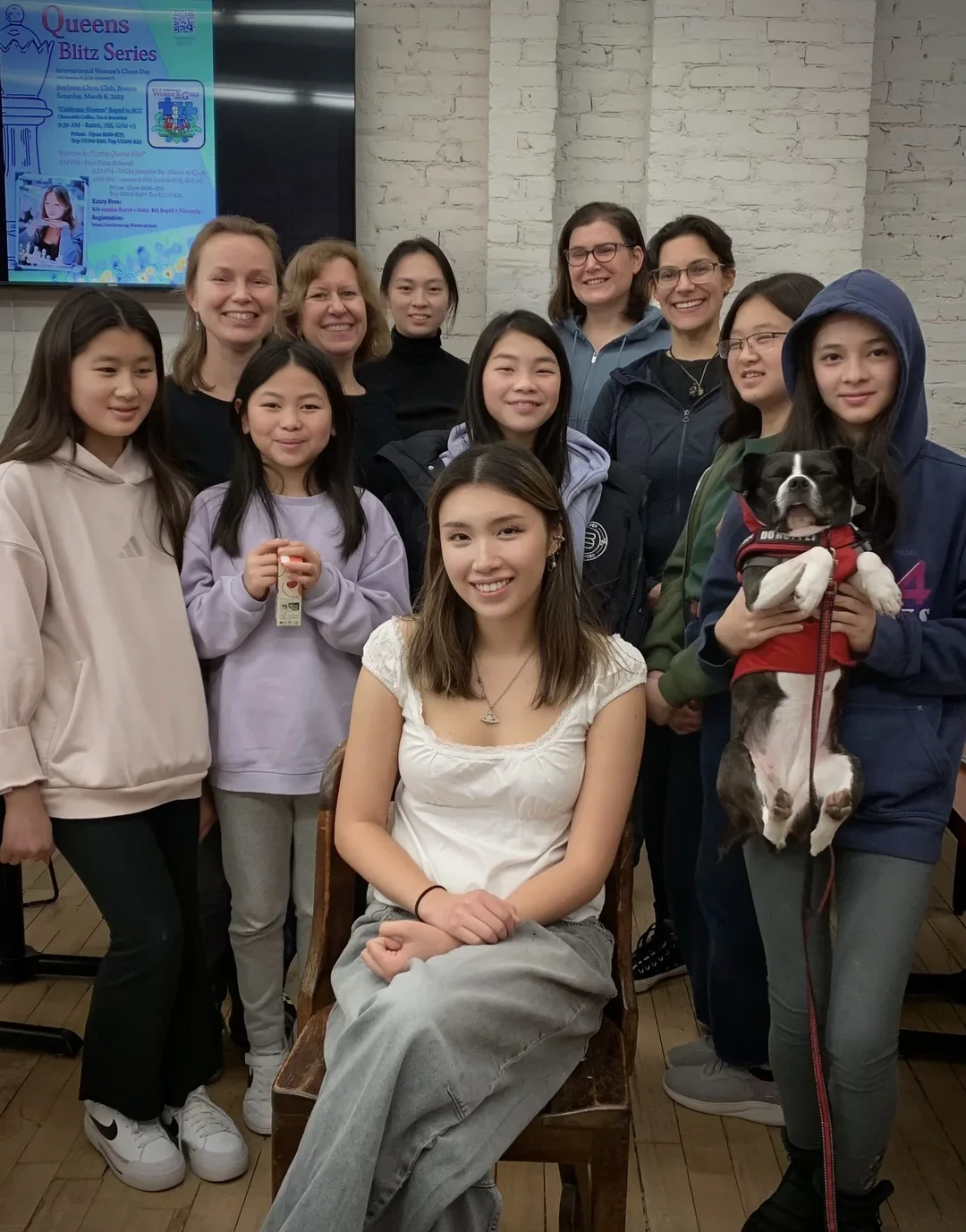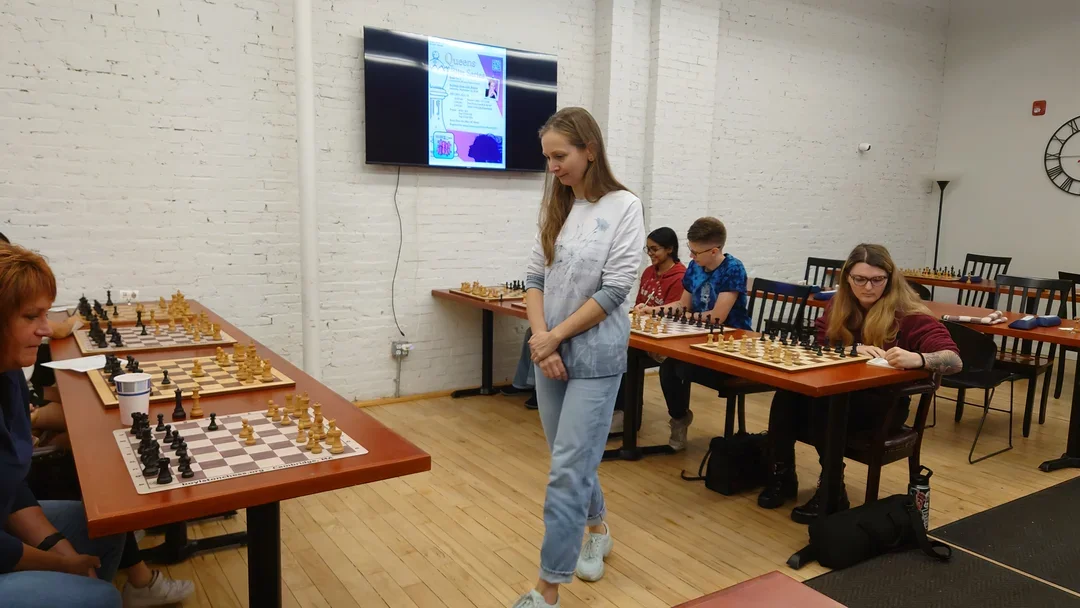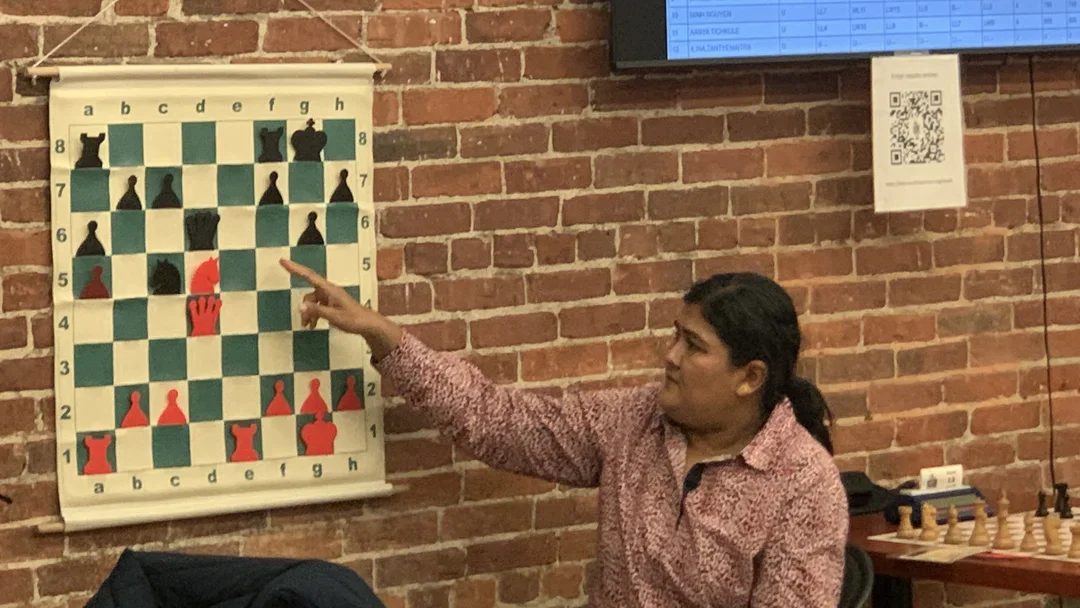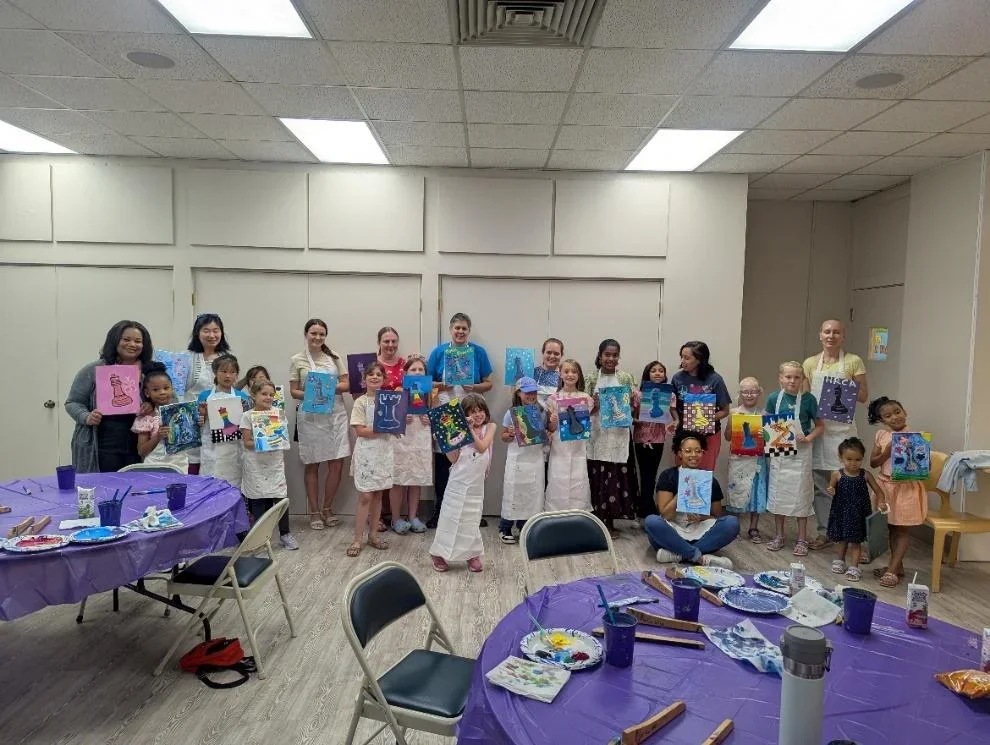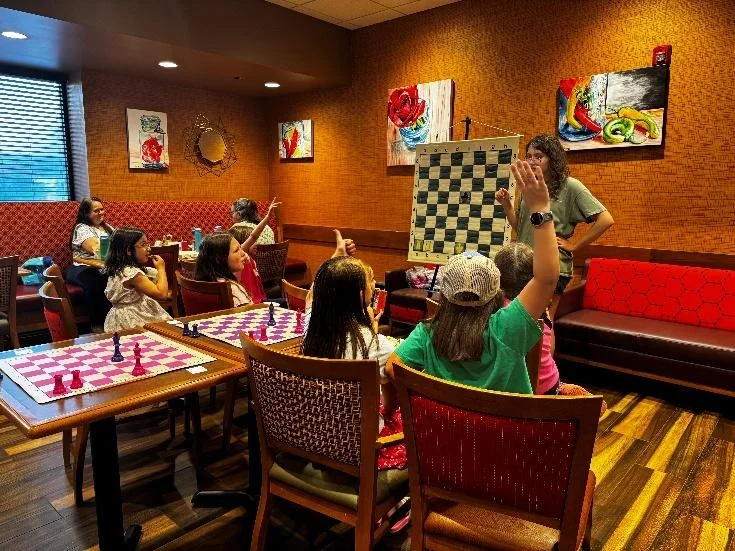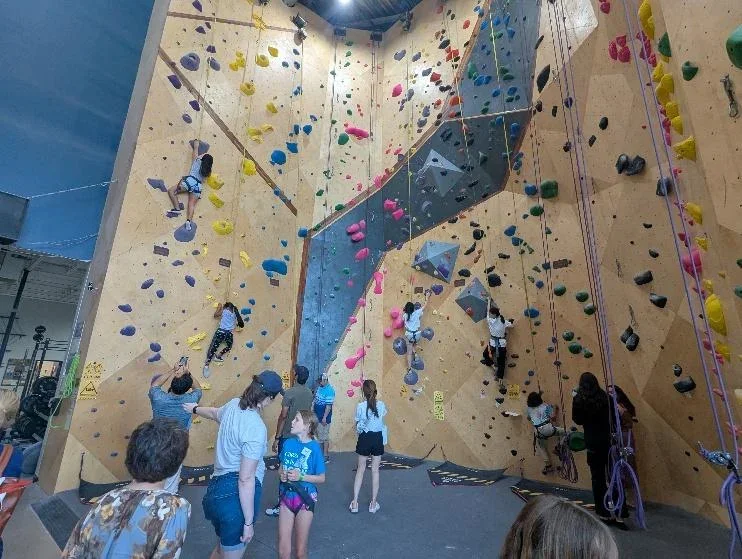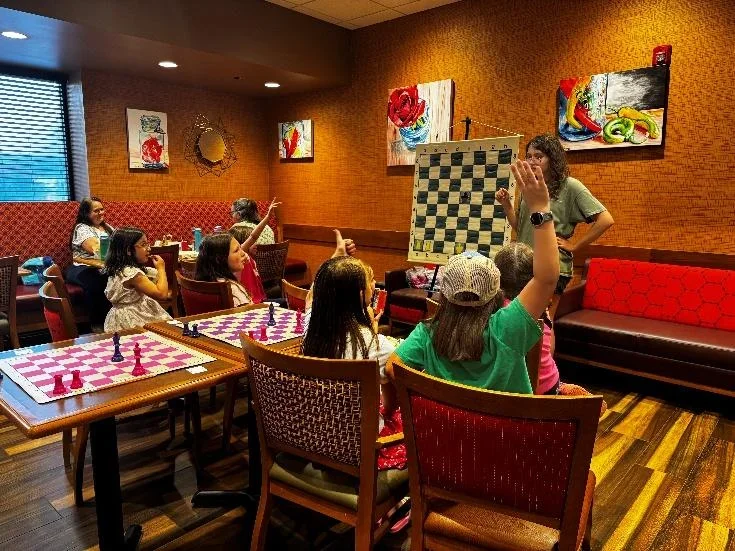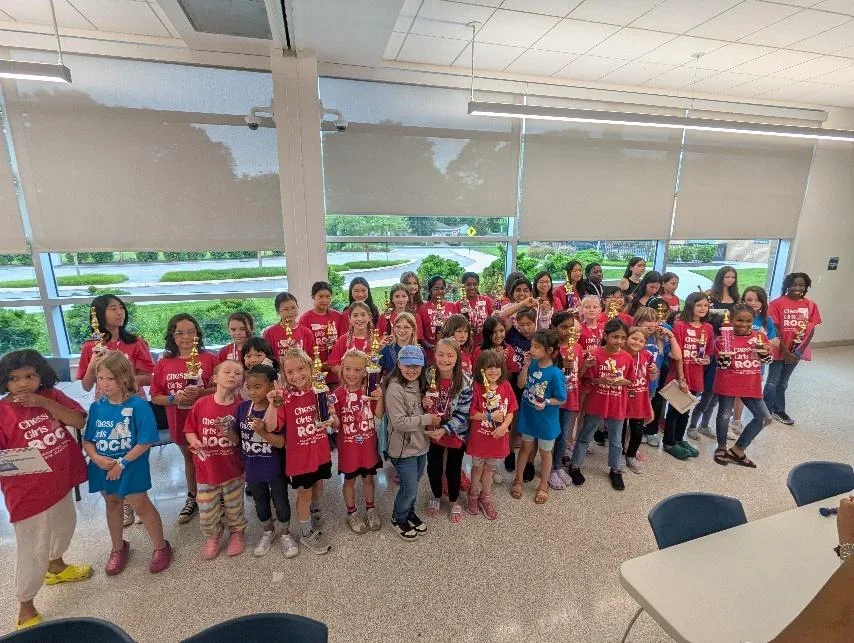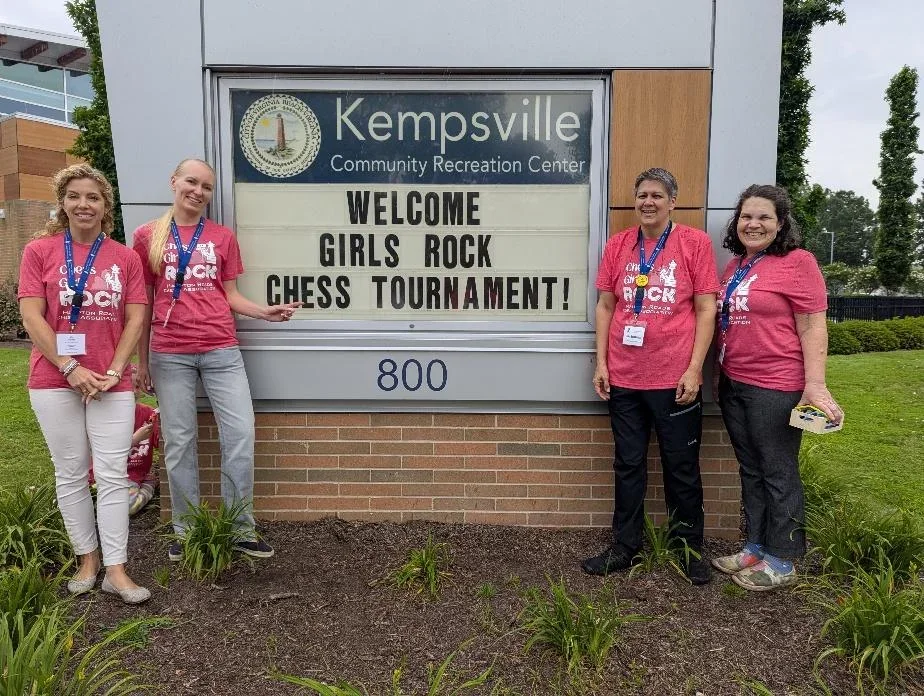Last year, US Chess announced 17 grant awards (up from seven the year before) under the US Chess Women’s program. With support from the Saint Louis Chess Club, US Chess annually offers grants to nonprofit affiliate members who are promoting programs that support women and girls in their respective communities.
As applications for this year’s grant cycle went live this morning, today we are sharing some highlights, photos, and testimonials from some of last cycle’s grant recipients and from women and girls who benefitted from these programs and initiatives.
We hope to receive even more applications this year, and hopefully this report will encourage both new and returning applicants by inspiring them with new ideas for how to encourage and grow women in chess.
Let’s go to a tournament!
Several of our grant recipients organized travel to state and national tournaments. Memorial Middle School (Harlingen, TX) traveled to the KCF All-Girls National Chess Championship, using grant funding to cover expenses. Why does this matter? We'll leave the explanation to the experts:
“I’m deeply grateful for the opportunity to attend the All Girls Nationals in Chicago and represent my school and community through chess, a game I’ve grown to love with all my heart," wrote Emery R., one of the three girls from Memorial to travel to Chicago for the national tournament. "Walking into a room filled with hundreds of talented girls who share the same passion was both humbling and empowering. Each match challenged me to stay focused, think creatively, and believe in my abilities. ... This experience reminded me that the hard work is worth it. Competing here helped me grow not just as a chess player, but as a confident young woman.”
Other grant recipients found that organizing regular club meetings and special guests for girls helped with boosting the number of girls who competed in local and state scholastic competition.
Having these tournament goals in mind, as well as funding to ensure interested kids could travel to these tournaments, certainly proved to be a formula for success for many girls from Students Leading Educational Opportunities (SLEO) in St. Louis, MO.
As one parent of an SLEO student wrote, “SLEO’s support shines like sunshine on every event, lighting up the chessboard of wisdom for more girls, allowing them to exercise their minds and courage in the game, gain precious friendship, and grow together.”
Special Guests
A popular use of grant funding was to invite special guests to give lectures or simultaneous exhibitions (simuls) at their local club. SLEO, for instance, hosted a simul with GM Jeffery Xiong as well as a lecture with former Women’s World Champion GM Tan Zhongyi.
The Massachusetts Chess Association made special guest lectures, simuls, and Q&A’s a highlight of its series of all-girls blitz tournaments hosted at the Boylston Chess Club in Boston, MA. Highlights included a simul with WGM Jennifer Yu, several lectures from GM Nadya Kosintseva, and lessons from both WIM Kateryna Odnorozhenko and WIM Prathiba Y Gounder.
“The Queens Blitz Chess Series is the first of its kind I attended in New England in the last 23 years," wrote Kavyashree Mallanna, an Expert-rated player, chess teacher, and founder and director of Celestial Minds. "In a single day, players got to experience competitive games, lectures and simul chess by accomplished female players, puzzle-solving sessions with prizes, and socializing with other like-minded people. ... I could bring my female students and daughter who enjoyed the sessions and were inspired watching other girls and titled players.”
The all-ages focus of the Queens series meant that adults were some of the most active participants and players, including two-time U.S. Women's Senior Championship participant WCM Natasha Christiansen. “I have had the great pleasure of participating in each of the six Queens Blitz Series, organized by Ukrainian-American WIM Kateryna Odnorozhenko," wrote Christiansen. "The blitz tournaments themselves were a friendly environment for females of all ages to practice their skills. ... I was particularly impressed by how the events attracted girls and women who had never played in rated events, as well as experienced players happy to get some extra practice.”
Chess…and more!
Many chess players have other hobbies! Sometimes, organizing a social event around chess and something else is a way to both encourage the chess-curious to stop by and to provide an opportunity for chess players to build and strengthen friendships in a new context.
The annual Chess Girls Rock weekend hosted by Hampton Roads Chess Association (HRCA) has become something of an annual tradition, and it is a joy to watch this event grow. Plus, HRCA has taken the idea further, organizing a Ladies and Girls Paint Night as an early icebreaker to provide some social time focused on creating chess art and chess bonds between the mothers and daughters who participated.
As one parent of an HRCA regular explains, the focus on community-building around chess does not come at the expense of prioritizing competitive chess. If anything, it’s been the opposite:
“My daughter is the oldest of 3, with two little brothers. Her brothers are classic boys. Roughhousing, sports, wrestling and causing trouble. She stays clear, preferring her books and her Pokemon cards. If you asked me last year, I might have called her non-competitive and bookish. But then we found chess.
All of a sudden, her competitive side emerged, and she started to care about winning. She's up at night on ChessKid bragging about the levels she unlocked. We're travelling all over the state competing in tournaments. We're pushing her out of her comfort zone and she's growing and improving every day.
Better yet, with Girls Club, she has something that's special and unique to her. No boys allowed. No brothers competing for attention. It's just her, her new friends, and the chess board.
Chess is boy-dominated, and that can be an intimidating barrier to entry. But with HRCA's girl programming, our daughter had her own lane where she could learn in a comfortable environment, make new friends, and go on to checkmate the boys when tournament time came.”
A similar sentiment was mirrored by one self-described “chess-obsessed grandma,” crediting the program’s focus on a safe space for girls with unlocking the chess obsession gene in her granddaughter:
“My six-year-old granddaughter has been through a lot in her young life and struggles to trust and to make friends. Being raised by her chess-obsessed grandma, she was introduced to the game very young, took an interest last summer, but then lost interest during the school year.
Then she took part in the Girls Rock weekend as a camper along with her younger sister this year, and she was inspired to see all the girls playing chess and loved hanging out with them for three days. Now she’s back on ChessKid working on her chess daily, and her little sister is always begging to play. I’m looking forward to getting them involved in our chess programs this coming school year.”
Mentorship
Not all of our grant recipients organized events exclusively for women and girls. The Ypsilanti District Library in Michigan, for instance, found that centering mentorship opportunities for girls led to their 25-week afterschool program beginning with and retaining roughly 50% female participation.
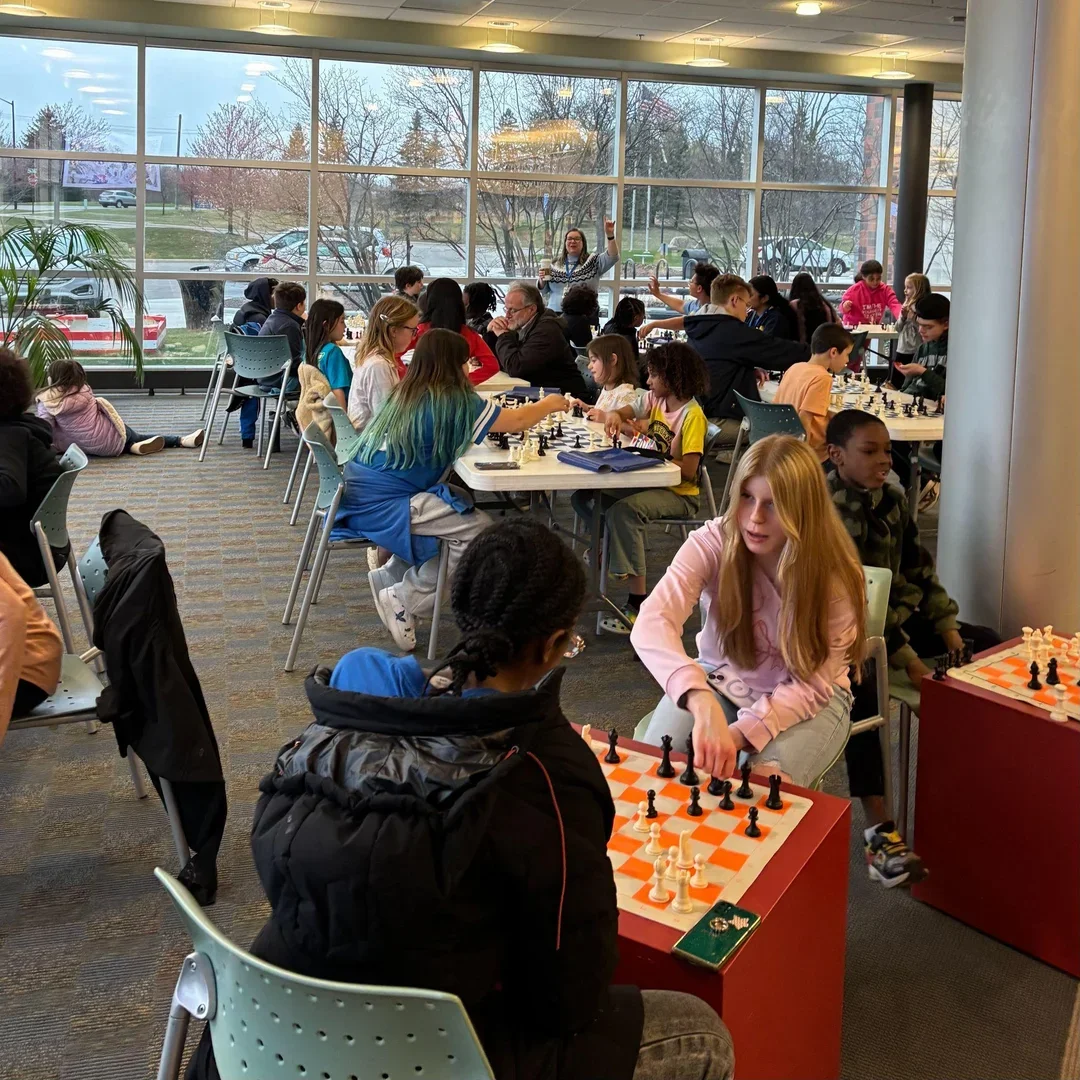
Older girls with experience playing chess were explicitly recruited to be role models for younger students, including serving as chess teachers for new players who joined the club during the year. This model was also adopted by SLEO in St. Louis, where 20 of the club’s volunteers were female and, by the end of the school year, over half of the participants were girls.
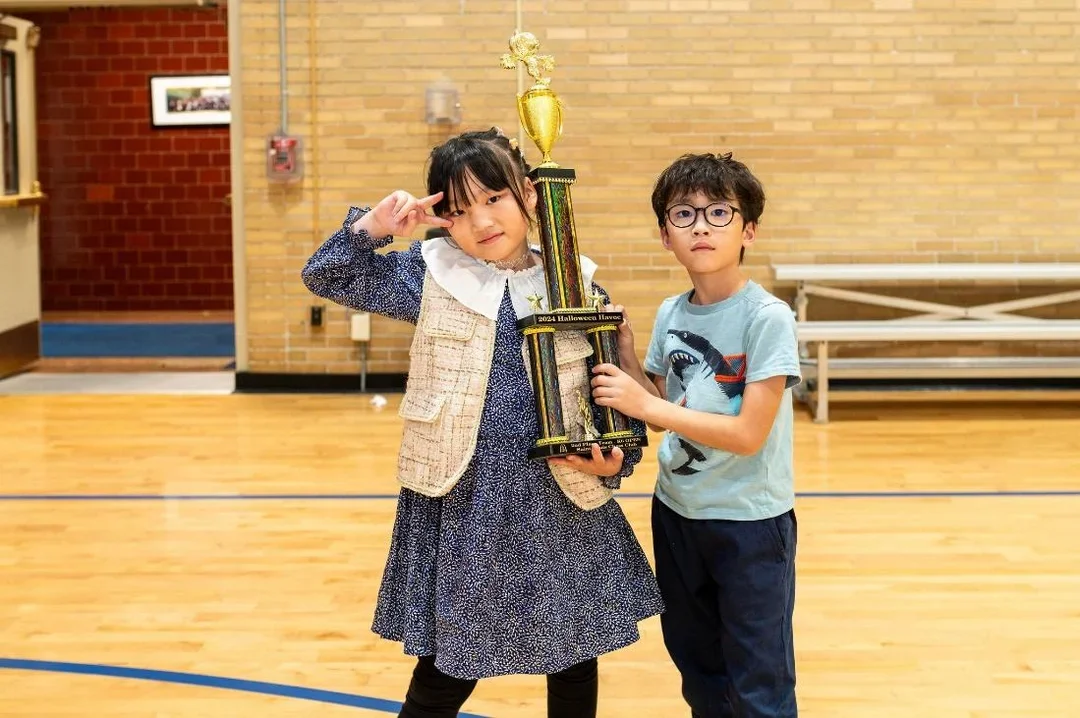
This year we had four teens helping most weeks. Three served as volunteers; and one young woman with more chess expertise worked as a paid intern funded by our US Chess grant. Volunteers created a welcoming environment, greeted younger participants, helped newcomers learn the basic moves, and played games as needed to make sure everyone had an opponent. In addition to these tasks, our intern helped set up the mini tournaments and assembled the chess book.
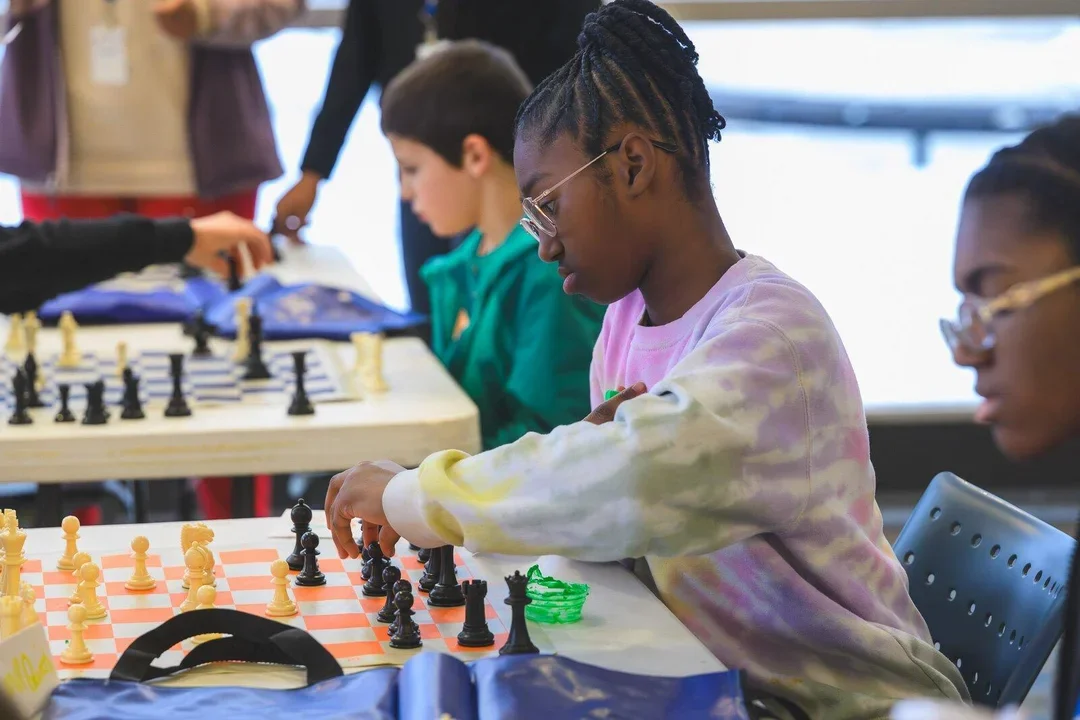
The chess club is a family affair for Skylar Smith, age 12. Her father was her first chess teacher, and her grandmother often brings her to the Wednesday evening meetings. Smith has been attending the club for only a few months, and she says she's come to enjoy the game. She says meeting new people and learning their playing styles is fun for her.
"It's nice that, after I lose or I win, I get to figure out what I did and how to do better," Smith says.
Skylar regularly attended Chess Club and also went to Lansing to compete in March with her two sisters. They look forward to being part of the club again next year.
Tournaments!
Organizing a tournament (or several) was one of the most popular uses of grant funds. Nothing captures the joy of chess like competing in a rated event. But renting a playing hall, compensating staff, and covering prizes add up, especially for organizers looking to grow their events and break records.
This is what happened with the Washington Chess Federation, whose 2025 Western States Regional Chess Championship for Girls and Women broke attendance records in style. As WFM Chouchanik Airapetian wrote, “[A]mazing awards were offered for each section along with a cash prize for categories including: Upset, Best Etiquette, Best Mother and Daughter Team, Kindness and Spreading Joy and Best Dressed awards. Next year the goal is to create girls’ or Women Team award in 2026.”
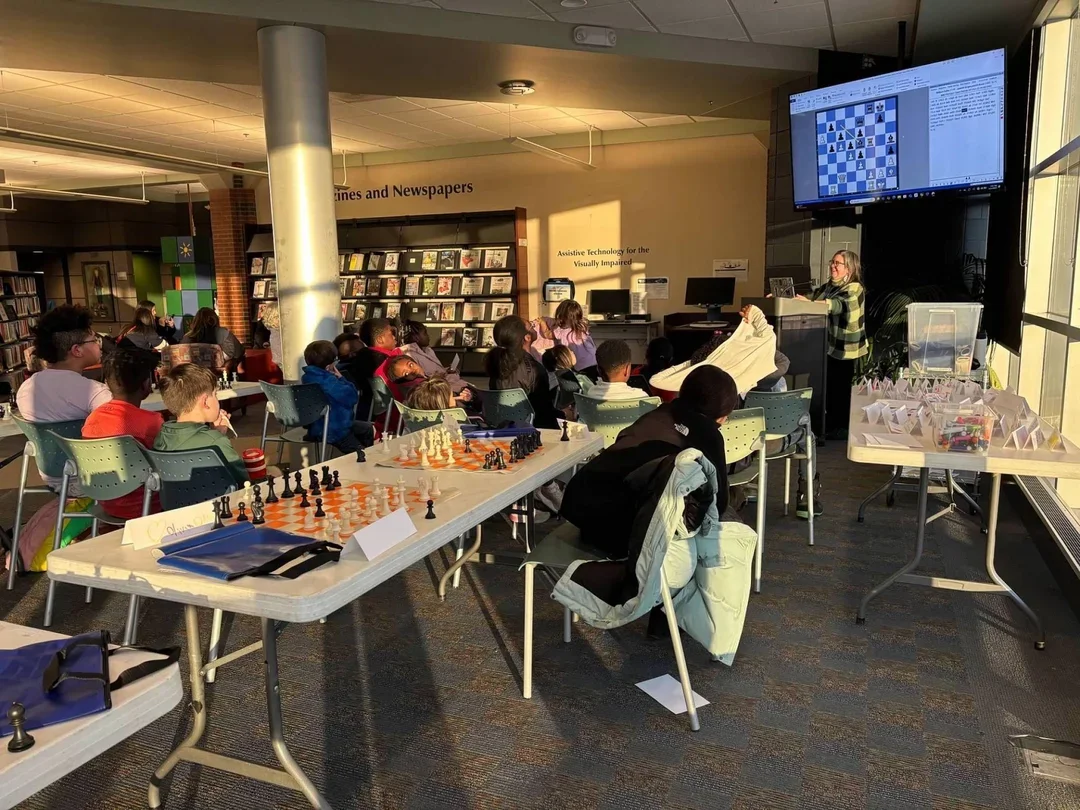
Other grant recipients were able to use grant funding to cover expenses such as membership or cost of entry fees, such as in Ypsilanti. Youth Programs director Jodi Krahnke explains:
“Because the library is free and welcomes everyone equally, we cannot charge an entry or membership fee to programs, limiting our ability to host rated tournaments.
This year, thanks to US Chess funding, we purchased 34 US Chess memberships for regular participants, including 19 females. We hosted 6 mini tournaments on the first week of the month that featured quick rated games where participants learned how to use chess clocks and other chess tournament etiquette.
We hosted one large tournament on a Saturday in April where we awarded trophies and pins to participants.”
Applications for the 2025-26 grant cycle are open now, with submissions due by 5 p.m. CDT on August 16, 2025.
Categories
Archives
- January 2026 (4)
- December 2025 (27)
- November 2025 (29)
- October 2025 (39)
- September 2025 (27)
- August 2025 (29)
- July 2025 (43)
- June 2025 (25)
- May 2025 (24)
- April 2025 (29)
- March 2025 (29)
- February 2025 (20)
- January 2025 (24)
- December 2024 (34)
- November 2024 (18)
- October 2024 (35)
- September 2024 (23)
- August 2024 (27)
- July 2024 (44)
- June 2024 (27)
- May 2024 (31)
- April 2024 (51)
- March 2024 (34)
- February 2024 (25)
- January 2024 (26)
- December 2023 (29)
- November 2023 (26)
- October 2023 (37)
- September 2023 (27)
- August 2023 (37)
- July 2023 (47)
- June 2023 (33)
- May 2023 (37)
- April 2023 (45)
- March 2023 (37)
- February 2023 (28)
- January 2023 (31)
- December 2022 (23)
- November 2022 (32)
- October 2022 (31)
- September 2022 (19)
- August 2022 (39)
- July 2022 (32)
- June 2022 (35)
- May 2022 (21)
- April 2022 (31)
- March 2022 (33)
- February 2022 (21)
- January 2022 (27)
- December 2021 (36)
- November 2021 (34)
- October 2021 (25)
- September 2021 (25)
- August 2021 (41)
- July 2021 (36)
- June 2021 (29)
- May 2021 (29)
- April 2021 (31)
- March 2021 (33)
- February 2021 (28)
- January 2021 (29)
- December 2020 (38)
- November 2020 (40)
- October 2020 (41)
- September 2020 (35)
- August 2020 (38)
- July 2020 (36)
- June 2020 (46)
- May 2020 (42)
- April 2020 (37)
- March 2020 (60)
- February 2020 (38)
- January 2020 (45)
- December 2019 (34)
- November 2019 (35)
- October 2019 (42)
- September 2019 (45)
- August 2019 (56)
- July 2019 (44)
- June 2019 (35)
- May 2019 (40)
- April 2019 (48)
- March 2019 (61)
- February 2019 (39)
- January 2019 (30)
- December 2018 (29)
- November 2018 (51)
- October 2018 (45)
- September 2018 (29)
- August 2018 (49)
- July 2018 (35)
- June 2018 (31)
- May 2018 (39)
- April 2018 (31)
- March 2018 (26)
- February 2018 (33)
- January 2018 (30)
- December 2017 (26)
- November 2017 (24)
- October 2017 (30)
- September 2017 (30)
- August 2017 (31)
- July 2017 (28)
- June 2017 (32)
- May 2017 (26)
- April 2017 (37)
- March 2017 (28)
- February 2017 (30)
- January 2017 (27)
- December 2016 (29)
- November 2016 (24)
- October 2016 (32)
- September 2016 (31)
- August 2016 (27)
- July 2016 (24)
- June 2016 (26)
- May 2016 (19)
- April 2016 (30)
- March 2016 (36)
- February 2016 (28)
- January 2016 (32)
- December 2015 (26)
- November 2015 (23)
- October 2015 (16)
- September 2015 (28)
- August 2015 (28)
- July 2015 (6)
- June 2015 (1)
- May 2015 (2)
- April 2015 (1)
- February 2015 (3)
- January 2015 (1)
- December 2014 (1)
- July 2010 (1)
- October 1991 (1)
- August 1989 (1)
- January 1988 (1)
- December 1983 (1)


